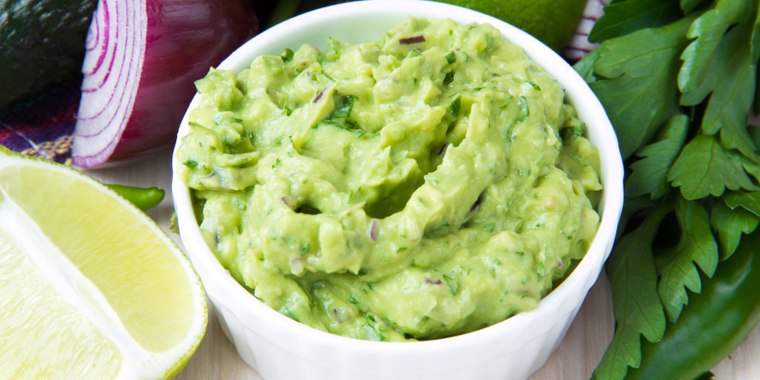Let us interrupt your love affair with avocado for just a moment.
No, it doesn’t have to be a breakup on the eve of National Avocado Day, just a little reminder for anyone enjoying large quantities of avocado toast, guacamole, avocado salad, avocado scrambled eggs, avocado wraps and avocado smoothies — and feeling good about it because of the “good fat.”
It all started with a TODAY article about foods cardiologists try to avoid and a conversation with Dr. Andrew Freeman, director of cardiovascular prevention and wellness at National Jewish Health in Denver, Colorado.
Freeman mentioned he was taken aback by how much of the fatty fruit everyone seems to be consuming.
“It feels like people are eating avocados by the dozen, like every day,” Freeman told TODAY. “I tell people to certainly enjoy avocado, but not to overdo it. Because it seems crazy — I just feel like people are eating unbelievable quantities.”
When it comes to avocados, you can have too much of a good thing and overdo it, said NBC News Health and Nutrition Editor Madelyn Fernstrom and Kristin Kirkpatrick, manager of wellness nutrition services at the Cleveland Clinic Wellness Institute.
First, let’s talk about all the wonderful health aspects of an avocado.
A whole fruit contains about 21 grams of heart healthy monounsaturated fat, Fernstrom said. This type of fat — also found in nuts and vegetable oils — can help lower your LDL, or bad, cholesterol, and helps develop and maintain your cells, according to the National Institutes of Health. This fat is also high in vitamin E, which is needed for healthy vision and a healthy immune system, the agency added.
Monounsaturated fats can have a positive effect on your health when eaten in moderation, the American Heart Association notes.
One avocado also contains 10 grams of fiber — or almost half of your daily requirement — and with a variety of vitamins and minerals, including potassium, vitamin C, vitamin B-6 and magnesium, the fruit is also naturally free of sodium, cholesterol, and sugar, Fernstrom said.
“Its creamy texture and high fat content makes portion control easy because a small serving provides high eating satisfaction and fullness,” she noted.
“Studies show that consumption of avocado could help with reducing the risk of both metabolic syndrome as well as heart disease. Plus, avocados are a filling, lower-carbohydrate snack for anyone looking to lose weight,” Kirkpatrick added.
So what’s the problem?
Avocados are not calorie-free.
One avocado — about one cup cubed — contains about 240 calories, or about 10% to 20% of most people’s daily calorie needs, said Fernstrom. Think of them as a fat, not a fruit. Heart-healthy fats have the same amount of calories as artery-clogging fats, so moderation is key to maintain a healthy weight.
“When you eat avocados, the calories add up quickly. You can overdo even healthy foods if it ends up costing you hundreds of extra calories per day that your body simply does not need,” Kirkpatrick noted.
Some of her patients have rationalized their decision to overeat fried corn chips because they thought the chips were a "healthy snack" when guacamole was present.
How much to eat:
One avocado a day can help improve bad cholesterol levels in overweight and obese people, a study published in 2015 in the Journal of the American Heart Association found.
Make avocados part of your daily healthy eating plan, but consider downsizing your servings to:
- half of a whole fruit, 120 calories
- a third, 80 calories
- a few thin slices, 65 calories
Balance it with a variety of colorful fruits and vegetables to maximize nutrient intake.
If you’re struggling to lose weight, find yourself gaining weight or develop any condition that requires you to slash all fats in the diet, it might be time to take a hard look at having avocados all day long, Kirkpatrick said.
Try it on salads, sprouted whole grain bread or just by itself.
By the way, avocado oil offers another option for heart-healthy cooking, but it has a distinct taste, can be pricey and, like all oils, has 120 calories per tablespoon, Fernstrom said.


